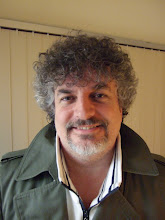Is it really holistic medicine versus Western medicine?
Or is it practical medicine versus conceptual medicine?
Here's what brought this on for me.
There are (at least) two investigations of holistic practitioners going on right now in Ohio. The first I'm most aware of is my naturopath. She uses natural remedies, like herbs, dietary changes, etc. - to help me and the rest of her patients. No drugs, no surgery - she's not qualified nor would she want to do those things. If they're needed, she refers us to medical doctors.
She's being investigated by the Dietetics Board of Ohio. They're trying to prove that she is "practicing dietetics without a license." What's "practicing dietetics" you ask? Well, anyone who gives dietary advice to another person, paid or unpaid. Yes, you heard that right. Basically every parent on earth is "practicing dietetics," and most of the rest of us too.
Secondly, there's a chiropractor in Athens, Ohio who is being harassed by the chiropractic board because he does some energy healing in addition to, or often instead of, chiropractic manipulations.
His investigation floored me. Their first step was to force him to subject to a psychiatric examination. Huh? Yes, they wanted to find out if he was crazy.
Let me get this straight. If you don't practice medicine in exactly the way we think you should practice medicine, YOU MUST BE CRAZY!!
This brings me to my thesis. It really isn't about Western medicine versus holistic medicine. It is a question of whether you fit into my "concept" of medicine or not. If you don't, you must be nuts. Cu-koo. Off your rocker.
Hmmm. That is the only explanation I can find. Western medicine is actually Conceptual Medicine. You need to fit in with the concept, or else. The conceptual framework extends to randomized clinical trials. If we test it in a laboratory, and we perform it very scientifically, it MUST work. It just has too.
Unfortunately, when these techniques or drugs come out of the clinical trials, they often don't work in real life.
Real life is complicated. It has more randomness than you can factor out in a trial. Tons and tons of randomness.
Many of these studies are done with only a handful of subjects. A few dozen or a few hundred. Any statistician from another area would laugh out loud at doing a test in such a complex field of study as the body and thinking that a few dozen people could be reasonable representatives of the whole population. Silly!
You'd need at least several thousand. Even then, you're stuck.
"Randomized" is the problem. How can you randomize everything? Can you randomize out people's genes? How about the people who are contemplating suicide? I'm sure their immune systems are down, but people often don't talk about whether they're thinking about suicide, so they'll get in the study no problem. What about people who have just been exposed to a bunch of chemicals on their drive in to the study? Sat behind a big diesel truck for an hour in traffic. Immune system compromised. Study might as well be thrown out the window.
Holistic medicine, in my experience, is more about whether something works. If a holistic doctor tries a remedy with someone who has a certain set of conditions and it seems to work, the doctor will continue using it in that circumstance.
But this takes time. A doctor with more experience will be a better holistic doctor than a newbie.
But we can also learn from history. There are many therapies that are thousands of years old that Western medicine spurns (i.e. doesn't fit the "concept).
Ayurveda from India. Traditional Chinese Medicine. Why would we ignore so many years of "practical knowledge." Just arrogance. We invented a new "concept" and if the "old stuff" doesn't fit into it, we have to ignore it. And prosecute the practitioners of it.
My advice to you is --- pay attention to what works. What works for you, and what works for your friends. And what has worked for thousands of years. Don't make a "Vioxx decision."
Coming up...
A substitute for medical boards??
Inspired by Linspire
Saturday, February 25, 2006
Subscribe to:
Post Comments (Atom)

No comments:
Post a Comment